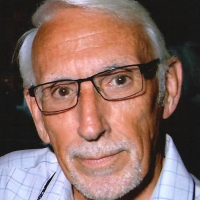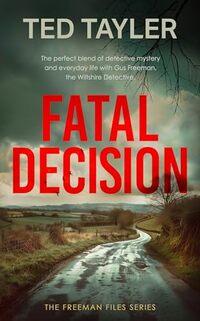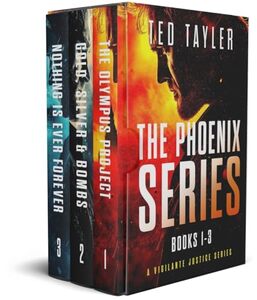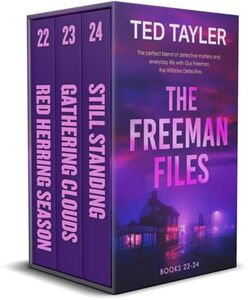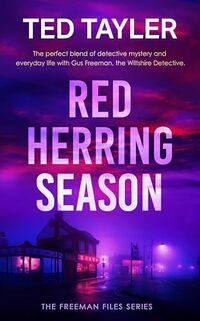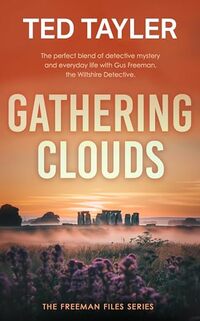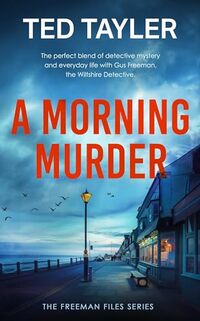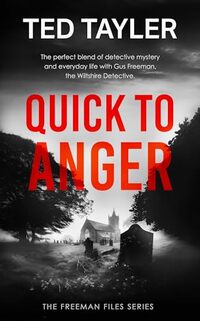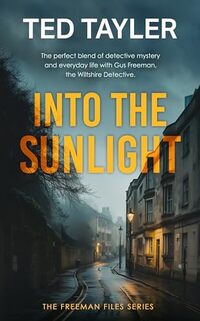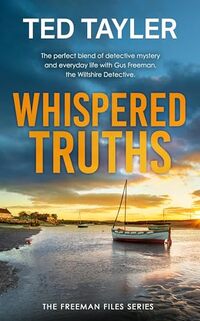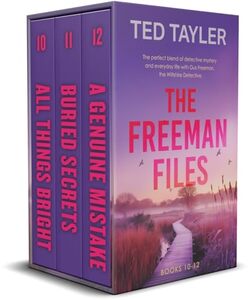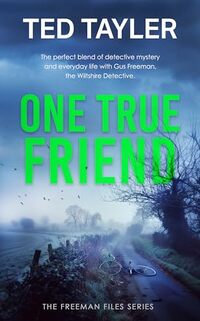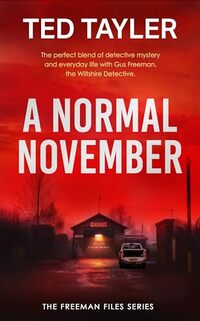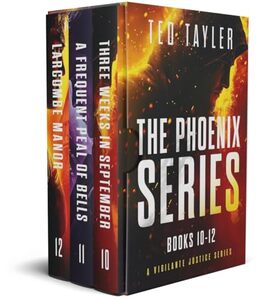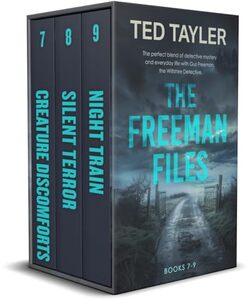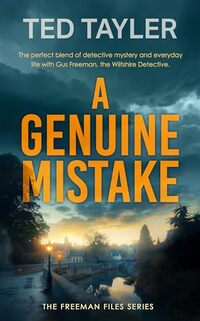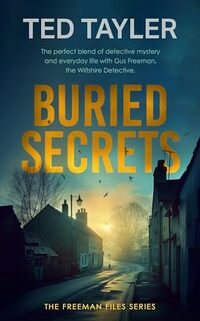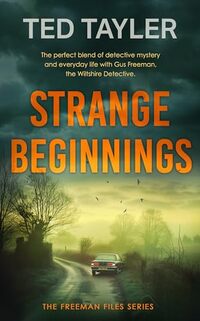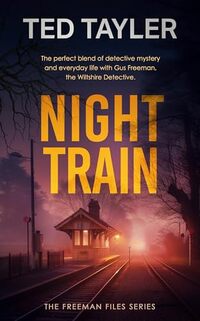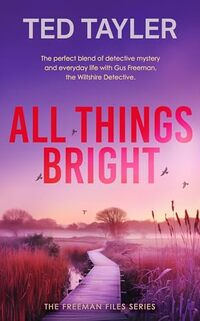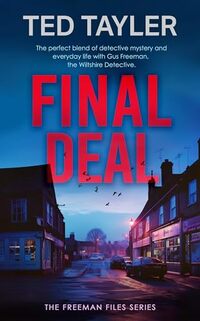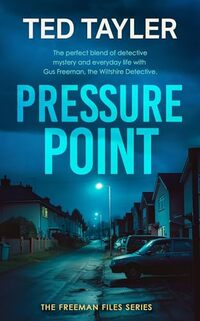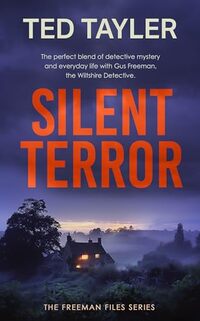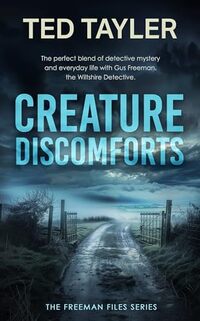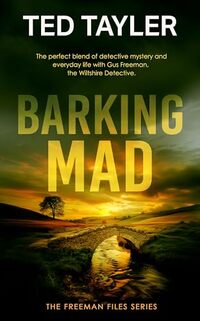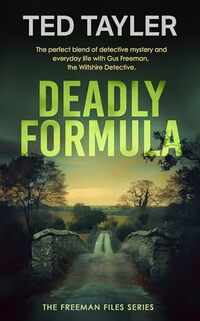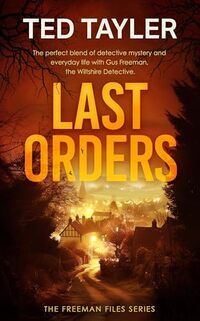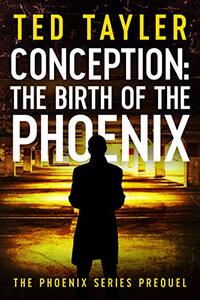Ted Tayler Interview Published on: 23, Feb 2018
 What was life like growing up in Corsham, Wiltshire? What school did you go to and what were your favourite subjects?
What was life like growing up in Corsham, Wiltshire? What school did you go to and what were your favourite subjects?
In fact, I was born in Corsham and moved five miles up the road to Melksham when I was four and a half. My first school was Lowbourne Junior, two hundred yards from our new home. At 11, I travelled a further six miles a day on the bus to Trowbridge Boys High School. My favourite subject was History. I grew up in the small, West country market town with my parents, and younger brother. Both my parents came from large families, so I had many aunts and uncles, and dozens of cousins. Family was very important to us, and almost every early memory is of times spent with our extended family.
When did you discover your love for books and literature? Was being a writer something that you always planned?My mother loved to read. She was the one to encourage me to read a lot. Her eldest sister, and her sister-in- law were both English teachers, so there was no escape. Whenever I visited them they devised word games, and spelling bees, or sat me down with a book to read if it was raining outside. There was no TV, and in the countryside where they lived, there was no electric light. Many of our games on winter’s evenings involved creating shadows on the walls and ceilings by gaslight. Although I loved literature, I never dreamed of writing until I was in my mid-sixties.
Were you in a band in school or college? How has music influenced and shaped your life even as a writer?I joined my first band while still at school. We all attended the same youth club in Melksham. Band members came and went as we progressed from gigs in that club to travelling across England and Wales playing with the top names from the Sixties and Seventies. Music has always been a large part of my life. As well as singing in bands for years, I’ve been a DJ, gig promoter and manager. My last gig was in November 2012. Every week I now write a review of a live gig I’ve attended. In my writing, sometimes there are references to music, especially in ‘Unfinished Business’, where my anti-hero Colin Bailey worked as a roadie. He could move around the country to carry out his vigilante actions with ease.
How is a normal day for you structured?When I’m writing a book, as I am currently, I start work at nine in the morning. I set aside forty-five minutes to an hour to deal with emails, social media, and promotion. After a short break I write for two hours. My wife and I then have lunch together before she orders me back to work! The length of time I work in the afternoons varies between two and three hours. My target is an average of two thousand words a day. Some days it’s easier to achieve than others; and if I haven’t reached that number in the afternoon, I might return for an hour in the evening. I’ve never suffered from writer’s block, so that isn’t necessary that often. A day’s work has produced as little as 750 words, and as much as 4000. I maintain two thousand a day without too much trouble.
What started the Phoenix Series? Who was your inspiration for the character Colin Bailey?My first foray into writing was my book of memories of those years in the bands. After I had sold all the paperbacks I had got printed to family, friends, and local musicians, I set up my website, joined Twitter and Facebook, and set about selling the Kindle version of the book. Eighteen months later, a few weeks after that last gig in 2012, I sat in front of the computer and wondered if I could write a novel. Colin Bailey was the anti-hero of ‘The Final Straw’ which is a thriller about an emotionally damaged young man seeking revenge against anyone who had stopped him becoming the person he believed he was destined to be. The character wasn’t based on anybody, and the Phoenix wasn’t even a pipe-dream.
During the summer of 2013, I tried my hand at short stories, and published a collection of 12 called ‘A Sting In The Tale’. My wife pestered me to write more about Colin Bailey and tie up the loose ends from the first book. After ‘Unfinished Business’ I was happy to stop. Writing was something I’d never done, I’d done it, and was ready to walk away to find another hobby. Because I recognised that the first two books had given me a great character in Colin Bailey, I agreed (reluctantly) to write a trilogy about a secret organisation that hired Bailey to continue his vigilante role. This necessitated his NOT drowning in the river after his clash with the policeman Phil Hounsell. The Phoenix was reborn.
I suppose the third book, ‘Nothing Is Ever Forever’ took the longest. I told you it was intended to be a three-book series. The titles were already fixed in my mind for the flow of stories I planned. When I decided that ‘there were more stories to tell’ I needed to rethink the topics I covered and rewrite the ending. It’s no coincidence that #4 in the series was titled ‘In The Lap Of The Gods’ because I had no idea how many books I was committing myself to, at that stage.
As for the topics I cover throughout the series – every story is based on the news headlines. Every crime has happened somewhen, somewhere in the world in the past three decades. That’s why the books kept coming, there was so much crime to write about, and so many injustices to put right – evenif it was only in the pages of a book.
I’m the wrong person to ask about anything technical. I’m a simple story-teller. I would never presume to tell a real author how to create suspense, or to adopt the tools and techniques my limited education armed me with. I left school and got a job that allowed me to be in a local band. I turned down the interview for a university place when it arrived, in case it whisked me a hundred miles away from what I knew I loved doing.
In ‘Unfinished Business’ you compare Bailey and Hounsell to Holmes and Moriarty. Who would be who? In a battle of wits, who would win?Conan Doyle is one of my all-time favourite writers. The comparison wasn’t really about the characters but referenced what Conan Doyle thought was the final battle between the great detective and the evil criminal mastermind at the Reichenbach Falls. When Bailey and Hounsell plunged into the foaming waters below Pulteney Weir, in Bath it was supposed to be the conclusion to the battles the two had fought across the two books. Holmes and Moriarty had crossed swords in several stories too, and Conan Doyle had decided it was time to move on.
The public outcry persuaded him to bring Holmes back. In my case, there was no public outcry, just my wife and a handful of readers who thought Bailey had a future as a character. So, Bailey returned as The Phoenix. He’s neither Holmes, nor Moriarty; he’s a vigilante killer with a social conscience perhaps. Hounsell was a dogged policeman, who had a sneaking admiration for the crimes Bailey carried out but thought that though the system didn’t always get it right, the vigilante approach wasn’t something he could condone. Conan Doyle was a cerebral writer. Neither of my characters would last five minutes in a battle of wits with Holmes and Moriarty.
Writing is a discipline. I outlined my daily schedule when I’m writing. If I find a chapter is giving me issues, I stop writing, walk away and find something else to do. I may listen to music, read a thriller (I review over one hundred books a year), watch sport, or go shopping with my wife. I’ve solved more than a few chapter problems in the local supermarket or garden centre. Family plays a huge part in both our lives, so if we spend time with our children, and grandchildren. I’m soon energized to get back writing again.
Do you like to focus more on creating strong characters or a strong plot?For me it’s fifty percent of both. As the series has developed, I feel I have created dozens of strong characters, many only appear in one book. A dozen have been ever-present, and their personalities determine how the plot I’ve selected is handled. I never set out with a rigid script. I choose themes from the headlines to be featured and establish a rough framework for the book, and a time frame. Then, I let the characters take me where they want to go. That’s why some characters I loved creating and writing about have been killed off. When I was in that garden centre, staring at bedding plants crammed into a tray, it dawned on me that to enable others to grow, some of the plants needed thinning out.
If you could have dinner with either Colin Bailey or Phil Hounsell, who would it be and what would you ask him?It would be Colin Bailey, no question. We would have dinner after attending a heavy metal concert featuring Iron Maiden, and Judas Priest. I would ask him which he would prefer to sing for?
Which is some of the best feedback you’ve ever had on your writing? How do you handle negative reviews?Reviews are the lifeblood for all writers. If you put your head above the barricades by publishing a book, then you must expect your fair share of negatives among the positives. Across all the titles I have put out there since early 2013, I guess the average review is around 4.25. The reason for that might be explained by this collection of words and phrases taken from reviews: - ‘Original plot with vivid details’, ‘Likeable characters and non-stop action’, ‘Great grasp of creating consistent tension’, ‘Each book is better than the last’, ‘In need of a good edit.’ I’ve struggled with the financial commitment required to negate the last comment. There are a hundred other reasons why I haven’t written a best-seller, but I’m happy with what I’ve achieved. If you read my blog post ‘A Year In The Life’ on my website then you’ll understand.
Born to a large family in Corsham, author Ted Tayler’s first school was Lowbourne Junior followed by Trowbridge Boys High School when he turned 11. Ted’s mother, along with his eldest sister, and her sister-in-law (who were both English teachers) always encouraged the bookworm in him, but he only started writing in his mid-60s. Having sung in bands for years, music has always been a large part of Ted’s life. When writing a book, he usually starts work at nine in the morning, with a target average of two thousand words a day. Ted keeps writing as there are so much crime and injustice to put right– even if it was only in the pages of a book. Hardly one to skimp on his books, Ted likes to give equal focus both to strong characters and a strong plot.
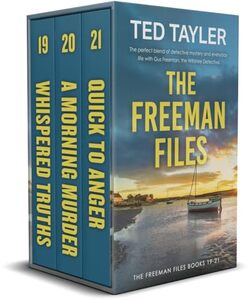 The Freeman Files Series - Books 19-21 (The Freeman Files Box Set)
Genre: Crime Fiction, Thriller, Mystery
The Freeman Files Series - Books 19-21 (The Freeman Files Box Set)
Genre: Crime Fiction, Thriller, Mystery
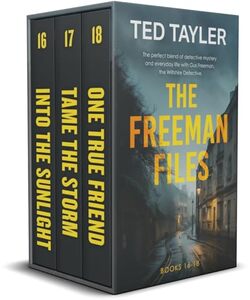 The Freeman Files Series - Books 16 - 18 (The Freeman Files Box Set)
Genre: Thriller, Suspense, Mystery
The Freeman Files Series - Books 16 - 18 (The Freeman Files Box Set)
Genre: Thriller, Suspense, Mystery
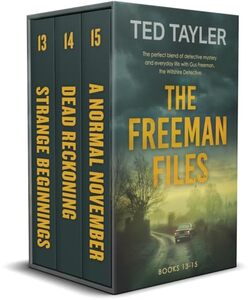 The Freeman Files Series - Books 13-15 (The Freeman Files Box Set)
Genre: Thriller, Suspense, Mystery
The Freeman Files Series - Books 13-15 (The Freeman Files Box Set)
Genre: Thriller, Suspense, Mystery
 Larcombe Manor - The Phoenix Series Book 12
Genre: Crime Fiction, Thriller, Suspense, Action & Adventure
Larcombe Manor - The Phoenix Series Book 12
Genre: Crime Fiction, Thriller, Suspense, Action & Adventure
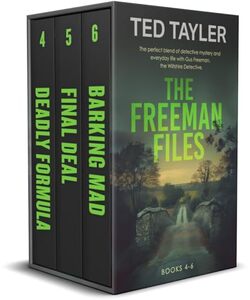 The Freeman Files Series: Books 4 - 6 (The Freeman Files Box Set)
Genre: Crime Fiction, Thriller, Suspense
The Freeman Files Series: Books 4 - 6 (The Freeman Files Box Set)
Genre: Crime Fiction, Thriller, Suspense
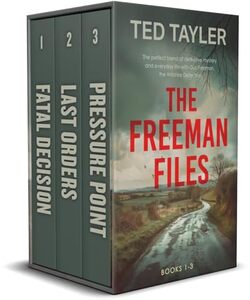 The Freeman Files Series: Books 1-3 (The Freeman Files Box Set)
Genre: Crime Fiction, Thriller, Suspense
The Freeman Files Series: Books 1-3 (The Freeman Files Box Set)
Genre: Crime Fiction, Thriller, Suspense
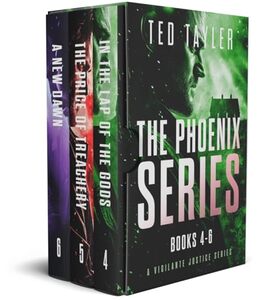 The Phoenix Series: Books 4-6 (The Phoenix Series Box Set)
Genre: Crime Fiction, Thriller, Suspense, Action & Adventure
The Phoenix Series: Books 4-6 (The Phoenix Series Box Set)
Genre: Crime Fiction, Thriller, Suspense, Action & Adventure
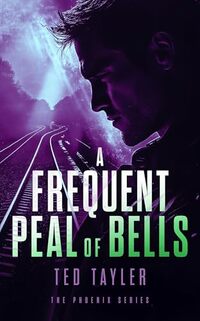 A Frequent Peal Of Bells: The Phoenix Series - Book 11
Genre: Crime Fiction, Thriller, Suspense, Action & Adventure
A Frequent Peal Of Bells: The Phoenix Series - Book 11
Genre: Crime Fiction, Thriller, Suspense, Action & Adventure
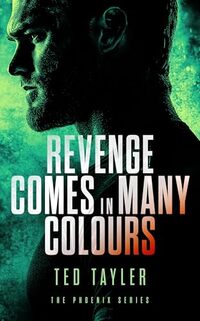 Revenge Comes In Many Colours: The Phoenix Series Book 9
Genre: Crime Fiction, Thriller, Suspense, Action & Adventure
Revenge Comes In Many Colours: The Phoenix Series Book 9
Genre: Crime Fiction, Thriller, Suspense, Action & Adventure
 Evil Always Finds A Way: The Phoenix Series Book 8
Genre: Crime Fiction, Thriller, Suspense, Action & Adventure
Evil Always Finds A Way: The Phoenix Series Book 8
Genre: Crime Fiction, Thriller, Suspense, Action & Adventure
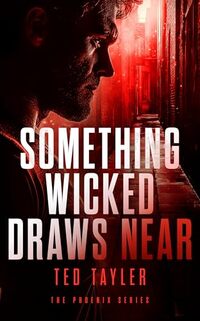 Something Wicked Draws Near: The Phoenix Series Book 7
Genre: Crime Fiction, Thriller, Suspense, Action & Adventure
Something Wicked Draws Near: The Phoenix Series Book 7
Genre: Crime Fiction, Thriller, Suspense, Action & Adventure
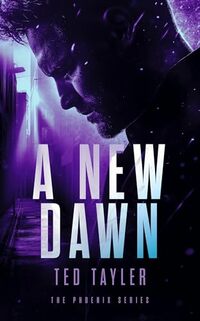 A New Dawn: The Phoenix Series Book Six
Genre: Crime Fiction, Thriller, Suspense, Action & Adventure
A New Dawn: The Phoenix Series Book Six
Genre: Crime Fiction, Thriller, Suspense, Action & Adventure
 The Price Of Treachery: The Phoenix Series Book 5
Genre: Crime Fiction, Thriller, Suspense, Action & Adventure
The Price Of Treachery: The Phoenix Series Book 5
Genre: Crime Fiction, Thriller, Suspense, Action & Adventure
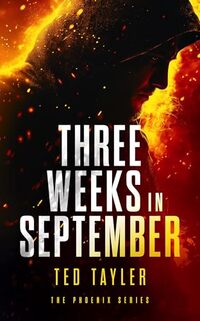 Three Weeks In September: The Phoenix Series - Book 10
Genre: Crime Fiction, Thriller, Suspense, Action & Adventure
Three Weeks In September: The Phoenix Series - Book 10
Genre: Crime Fiction, Thriller, Suspense, Action & Adventure
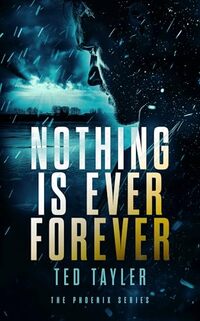 Nothing Is Ever Forever (The Phoenix Series, #3)
Genre: Crime Fiction, Thriller, Suspense, Action & Adventure
Nothing Is Ever Forever (The Phoenix Series, #3)
Genre: Crime Fiction, Thriller, Suspense, Action & Adventure
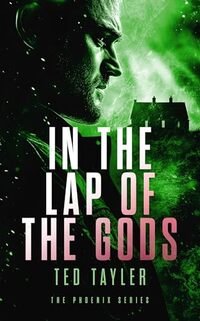 In The Lap Of The Gods (The Phoenix #4)
Genre: Crime Fiction, Thriller, Suspense, Action & Adventure
In The Lap Of The Gods (The Phoenix #4)
Genre: Crime Fiction, Thriller, Suspense, Action & Adventure
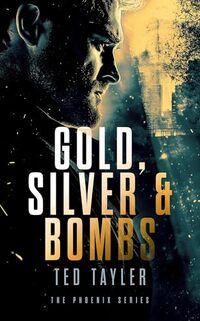 Gold, Silver, and Bombs (The Phoenix, #2)
Genre: Crime Fiction, Thriller, Suspense, Action & Adventure
Gold, Silver, and Bombs (The Phoenix, #2)
Genre: Crime Fiction, Thriller, Suspense, Action & Adventure
 The Olympus Project (The Phoenix Series - Book One)
Genre: Crime Fiction, Thriller, Suspense, Action & Adventure
The Olympus Project (The Phoenix Series - Book One)
Genre: Crime Fiction, Thriller, Suspense, Action & Adventure
